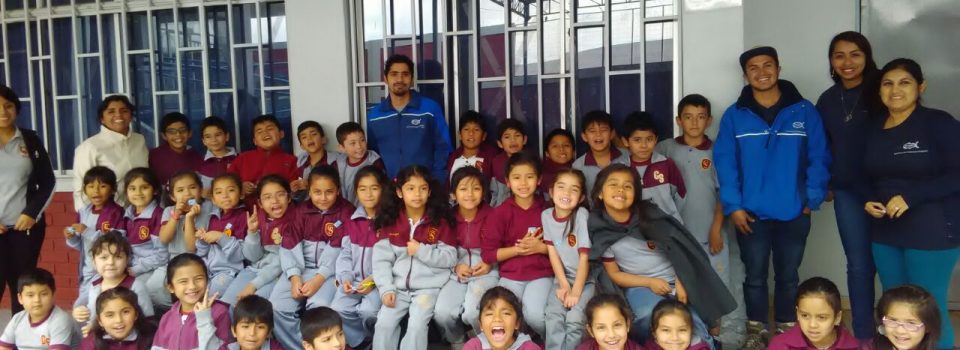IFOP gives talks on fishing issues at school in Arica
September 2nd, 2016
As an institution related to marine environment, we consider as an indispensable thing that the community know us and become familiar with our work regarding biological-fishery research.
The professional Raul Ojeda, Rodrigo Ulloa, Maria Esther Peña and Cynthia Carrasco, of Instituto de Fomento Pesquero, give some talks for 6 grades of Saucache School of Arica.
“The meeting takes place under the recently initiated discard Program in the north area, under an ecosystem approach which considers workshops for the general public, including schools. The objective is to train the community on this matter, since many people know the effects of some bad practices of human beings, but do not know its extent and scope; so, it is necessary to supplement the knowledge they already have with the information we can share, so as generating a solid basis to put into practice it in the future. It is important also to start this early childhood learning, because this is the period when they are most receptive and therefore it is vital to include the school community in different broadcasts “said Raul Ojeda.
Leonardo Nunez, Executive Director of Instituto de Fomento Pesquero, stressed that “activities like these are important because they allow the diffusion and communication of projects results being carried out by the Institute; also is an effective and far-reaching mean to contribute to the understanding of the fishing activity taking place in our ocean.”
Ojeda also referred to the issues discussed in the talks “there were three: discard, bycatch and marine pollution. The idea was to explain children the impact of these activities on marine wildlife and the environment in general. Thus, it was mentioned that discarding occurs while fishing activities; the fish caught is returned to sea, but in most cases, this fish is dead. Regarding bycatch, was explained that it is an involuntary event often consisting of the capture of birds, mammals and reptiles when they reach the boats for feeding, and sometimes fail to leave the network. Finally, they were told the causes and effects of marine pollution and how they can help reduce waste disposal at sea. While the first two issues are exclusive to fishing, marine pollution is something that involves us all. ”
“It was quite satisfying and rewarding for us to pass on our knowledge and experience both to teachers of the institution and children, being able to mark a turning point in them. We had a very good reception by the children and teachers. We found a very participative and interested audience in learning more about marine life and understand through specific data how throwing waste in the sea affects them negatively. Sometimes we looked at their awed faces when they were watching some pictures as we explained how long take degrade naturally in the sea and we realized that they were unaware of many of the situations analyzed. After the presentation, they could interact directly with some samples of shellfish, fish and crustaceans.
In parallel with this workshop, the school board began a recycling program (plastic, paper, glass and batteries) to reduce potential waste that could reach the sea and encourage students to have good waste disposal practices. The school management was quite satisfied with the workshop and later they would like to include more grades” ended Raul.
